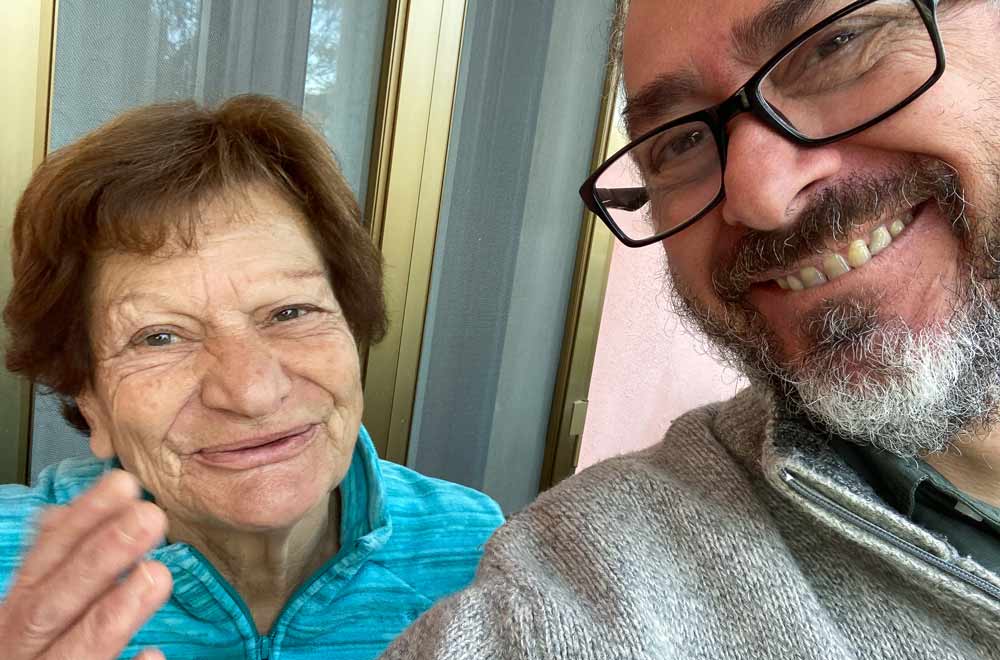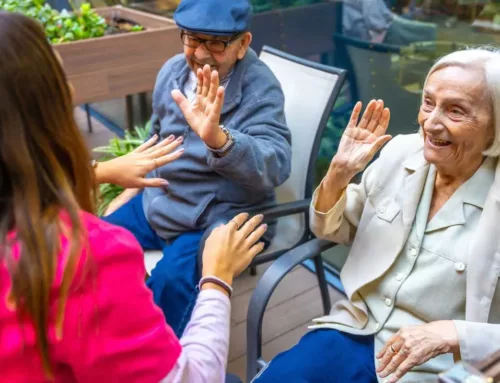
If you’re new to the world of senior care, figuring out what the best course of action is for both your aging loved one and yourself may be challenging. A senior’s needs aren’t always obvious – especially if their health has been declining steadily for a number of years. It might be difficult to know at what point further intervention or long-term residential assisted living is needed, but there are things you can keep an eye on to help make those decisions.
What to Look For
You know your parent or loved one best, and there are a whole host of things that might indicate to you that they need a little extra support. Perhaps they’ve always loved going into town and visiting their favorite coffee shop, but have recently stopped.
Or maybe you’ve noticed that their hair has started looking messy, despite them always taking great pride in their appearance. Consider your loved one’s ‘norm’ – if you notice them deviating from this, it might be a sign that something isn’t quite right.
But spotting a loved one’s declining health isn’t always straightforward. If you’ve become concerned about your parent or relative’s wellbeing, but can’t quite put your finger on why, take a moment to consider the following:
- Has their ability to complete important activities of daily living (ADLs) reduced?
For example, are they struggling to carry out personal care tasks like bathing or using the bathroom, or are they unable to move from place to place in their home as they used to? Perhaps they’re no longer able to get dressed, or get in and out of bed independently.
- Has something changed about their appearance or hygiene?
If you’ve noticed a newfound body odor, unkempt hair and nails or poor oral hygiene, for instance, this could indicate that they’re not managing to keep up with personal care tasks like brushing their teeth, bathing or combing their hair.
- How does their home environment look?
Does your once-houseproud parent’s home suddenly seem unusually cluttered or dirty? Things like stacks of unopened bills, stained furniture, spoiled food in the refrigerator or panty or evidence of hoarding could be another indication that your loved one needs additional senior care.
Oftentimes, both changes in appearance and household are closely linked with ADLs. For example, if a senior is getting more bruises than usual, they may be experiencing bumps and falls due to reduced mobility, and unexplained weight loss, untidiness or keeping spoiled food could indicate struggles with securing, preparing or physically eating meals.
What Options are Available?
Establishing that your parent or relative requires elder care is a great start – the next step is figuring out what the best senior care for them will look like. From aging at home to residential assisted living and 24-hour nursing care homes, there are a options available to meet different care needs of aging seniors.
Aging at Home
If your loved one is still coping fairly well and wishes to age in place, simple home modifications may be an option, for example:
- Installing a step-in tub or zero entry shower
- Moving their bedroom downstairs or installing a stair lift
- Adding grab bars in the bathroom and other high-risk areas
- Installing a ramp up to their front door
- Removing tripping hazards like rugs and clutter
Alternatively, if your parent or relative would prefer to stay at home but has more complex medical needs, it may be worth looking into home health services.
Moving in With a Loved one
If you or another close relative have the skills and time to provide appropriate senior care for your aging loved one, moving in with them or having them move in with someone else could be another option.
Be careful; however, providing care for a parent shouldn’t be too overwhelming, or have a devastating impact on the caregiver’s family or work life. Keep a close eye on how your loved one’s needs are progressing over time, and stay open to other options further down the line.
Residential Senior Care
Residential care involves a senior moving to a community specialized in elder care. Even within this sector, there are a range of options available to suit a variety of needs. If your loved one is still fairly independent, but needs some assistance with ADLs, residential assisted living could be an excellent choice.
In residential assisted living communities in Tucson, seniors can live with the autonomy they desire, empowered by on-site staff who can deal with emergencies and offer daily assistance with ADLs like using the bathroom, bathing, dressing and moving around. Residential assisted living facilities also typically serve tasty and nutritious meals and snacks daily, eliminating the need for grocery shopping and food preparation.
If your parent or loved one requires complex medical care around-the-clock, a 24-hour nursing care home may be appropriate. Nursing homes typically have registered nurses on-site 24/7, and are better equipped to cope with significant acute and chronic health conditions.
A Note for Caregivers
Navigating the ins and outs of elder care for a loved one can feel daunting, but rest assured that there are resources and support available. If you’re feeling overwhelmed or emotional, it’s understandable, and you’re certainly not alone. Reach out to close friends or family if you’re struggling, or find out whether there are any caregiver support groups in your area.
If you’re worried about the financial cost of elder care, there are a range of resources available to help you find out if your loved one is entitled to benefits or support. You can also speak to your residential assisted living community, nursing care home or home health service of choice for advice.
If you’re considering residential assisted living for your loved one, get in touch today. We’re happy to answer any questions and provide the peace of mind you need.




